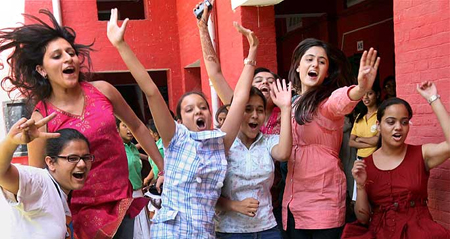
Nagpur, Mar 7: The Central Board of Secondary Education (CBSE) is pushing forward its initiative of using technology to promote academics and values. The central board has become the first among peers in country to have an official channel on YouTube, being called CBSEChannel. On this channel, affiliated schools can post videos produced by them thus giving them a wider audience and boost to branding.
Rama Sharma, spokesperson for CBSE, said, "The central board wants to make itself more accessible and make school activities more visible, hence this step. There are guidelines on what kind of videos can be uploaded and a special team is supervising the process."
CBSE has asked schools to submit their videos as attachments in e-mail or by post on a CD before March 31. But since the board has received a good response already, 168 videos are now available on the channel.
Schools can submit videos up to 10 minutes in length which are of activities undertaken by them. These activities, however, can only be based on preapproved themes. Schools have to send a short description of the video not exceeding 45 words, that will be posted online for viewers.
CBSE has asked schools to ensure that the video is well edited so that it appeals to viewers and also displays a sense of professionalism. The video also needs to be titled aptly so that its content is understood by a prospective viewer before clicking on the link. The board will retain control over the video submitted and has asserted its power to use it as it wishes.
The board is aware of the issue of plagiarism and has hence cautioned schools about it. The board's letter to school says that the video "should not contain any third party copyrighted material, or material that is subject to other third party proprietary rights. Also the content of the video should not be objectionable in any manner, and should not hurt the emotions and sentiments of any community, region, religion, gender, caste or creed". Videos are scrutinized by a special team at CBSE to ensure it meets these parameters.
However, not even a single video from Nagpur schools has been submitted yet. Reena Dargan, principal of Ira International, said, "I think almost all of us haven't got the time to notice it; plus there are no activities happening in school now. Board exams are on and all the extra-curricular activities stopped in December itself. But I have no doubt that once schools resume for next session, there will be a lot of participation from here."






Comments
Add new comment